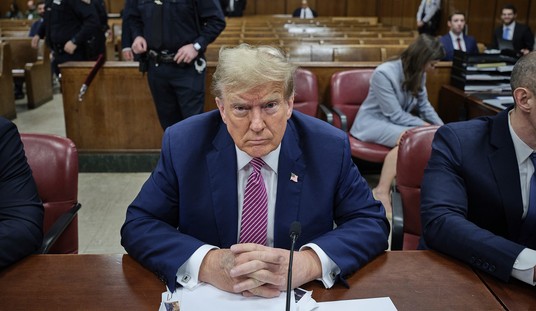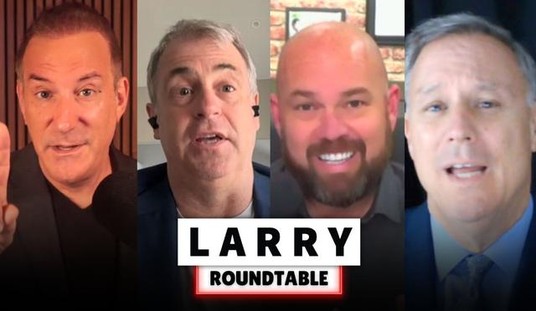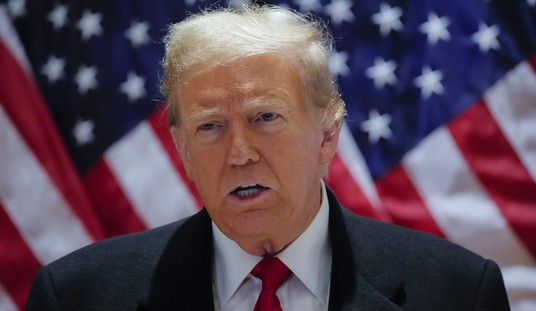Just last week, in exchange for government assistance to General Motors, President Obama demanded – and received – the resignation of GM Chairman Rick Wagoner. Now, his Treasury Secretary is claiming the prerogative to oust bank executives. The idea? That receipt of taxpayer bailout money should be conditioned on a show of “accountability” on someone’s part.

The problem, of course, is that in President Obama’s world, accountability is only for the private sector. Governmental (or quasi-governmental) entities and those who work for them (and therefore, by extension, directly for the taxpayers) seem exempt from the standards imposed on those in private enterprise.
Look at Obama’s own budget. According to Michael Boskin, a Stanford economics professor who chaired the Council of Economic Advisors under President George H.W. Bush, just the additional government spending Obama seeks will add $6.5 trillion to the deficit, compared to a baseline budget containing none of his new programs. That comes out to a tax bill of $163,000 over the next ten years for every family paying income taxes. So even as President Obama forces the removal of GM’s chairman for effectively bankrupting his company, he’s proposing to bankrupt the country on an unprecedented scale.
But the hypocrisy doesn’t stop there. The President vociferously denounced the $165 million in bonuses distributed by AIG, a recipient of government bailout money. So far, however, he’s been suspiciously silent about the news that quasi-governmental mortgage giants Freddie Mac and Fannie Mae are slated to hand out $210 million in bonuses this year. This, notwithstanding their combined loss of over $100 billion last year, and Fannie’s request for $15 billion of taxpayer bailout money.
Even before he was elected, President Obama bemoaned the inequity of the pay differences between CEOs and workers. Nevertheless, he apparently has no objection to the fact that several members of his administration have profited handsomely from firms at the center of the financial crisis. For example, he has yet to call on economic advisor Larry Summers to return any of the $2.7 million in speaking fees he earned last year from Bank of America, JP Morgan and others, even though it’s a safe bet that Summers made more for one speech than some workers make in a year. And Obama himself – the second largest recipient of AIG campaign largesse – has so far failed to return a penny that was given to him.
Recommended
President Obama likewise has pressed for a $500,000 cap on salaries of those heading bailed-out companies, whether or not they were responsible for the company’s problems. Yet his campaign sought out as an advisor Franklin Raines – the CEO of Fannie Mae who resigned in the shadow of a $6.3 billion accounting scandal, but nonetheless pocketed more than $50 million in bonuses. The Democrat-backed legislation designed to confiscate the infamous AIG bonuses leaves Raines and others like him untouched; the President has said nothing, despite his high-minded insistence that “[w]e’ve got to make certain that taxpayer funds are not subsidizing excessive compensation packages on Wall Street.” Well, only on Wall Street, it seems.
So why does the President seem willing to hold private enterprise – and business leaders – to higher standards than the government and those who work in it? Does it signal that the President sees business as inherently less entitled to respect than government, and profit-seeking businessmen as inherently less noble than the government workers who (supposedly) want only to “help”? Certainly such a world-view would be entirely consistent with his wife’s admonition to young people on the campaign trail last year: “Don’t go into corporate America” – and even understandable for a 47-year-old man who has neither met a payroll himself nor been closely associated with anyone who has.
As the final irony, it’s recently been reported that President Obama is refusing to allow banks to repay their TARP funds. In other words, he’s declined to allow them to exercise the “accountability” he has rhetorically embraced. How dismaying. Could it be, after all, that President Obama’s objective isn’t so much to demand responsibility from the private sector than it is to strengthen the government’s control over it?

























Join the conversation as a VIP Member